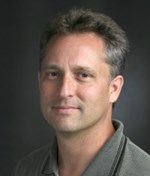
Scott Frailey is a Principal Reservoir Engineer for the Illinois Geologic Survey, where he is involved with the technical aspects of the CO₂ storage and CO₂ EOR programs and provides technical expertise in the areas of reservoir characterization and engineering including pressure transient analyses, core analyses, well log analyses, and reservoir modeling. Previously, Scott was an associate professor of petroleum engineering at Texas Tech University and a reservoir engineer at BP Exploration (Alaska). He graduated from the University of Missouri-Rolla with B.S., M.S., and Ph.D. in petroleum engineering. He is a registered professional engineer in Texas, New Mexico, Illinois, and Indiana.